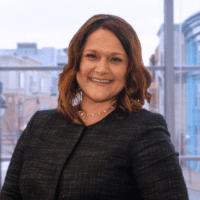Recycling, documents and information, may take little effort but it could cause significant problems in a school district’s compliance with IDEA and its provision of FAPE.
- “Annual goals were repeated in whole-sale fashion across multiple IEPs.”
- “An alarming number of goals and objectives were simply cut-and-pasted (typos and all) from one IEP to the next.”
- “District erred in simply reprinting the unedited IEP from the prior school year.”
- “The repetition of the goals and objectives from the prior year’s IEP is troubling.”
Courts, administrative hearing officers and parents do not look favorably upon IEPs with “recycled” goals and repetitive present levels of performance from year to year. If goals have not been met and are still required for the student’s FAPE, make sure the school district is able to explain why.
On March 22, 2017, the U.S. Supreme Court issued its decision in Endrew F. which addressed the standard for the provision of FAPE to students with disabilities. The Supreme Court unanimously rejected the Tenth Circuit’s standard of “merely more than de minimus benefit” as too low of a bar. The Court set forth the following clarification of the FAPE standard: “To meet its substantive obligation under the IDEA, a school must offer an IEP reasonably calculated to enable a child to make progress in light of the child’s circumstances.” The Court declined the parties request to define what an appropriate IEP looks like, and instead offered that the adequacy of an IEP turns on the unique circumstances of an IEP for whom it was created.” This standard is not inconsistent with the Third Circuit’s interpretation of “free appropriate public education” as requiring “significant learning” and “meaningful benefit” under the IDEA.
On remand to the District court, the Douglas County Sch. Dist. was found to have denied Endrew F. a FAPE when it included the same annual goals in four successive IEPs (Same goals for 2nd, 3rd, 4th and 5th grade). In an attempt to justify the recycling of goals, the District argued that the student’s severe behavior problems meant that he was incapable of greater progress. This defense was rejected and the District made a costly mistake in developing an IEP with unambitious, repetitive goals. For its failures, the District was required to reimburse the family’s private school tuition and transportation costs.
It is clear that the IDEA does not require a district to increase a student’s annual goals based on lack of achievement; rather, the IDEA states the IEP team must revise the student’s IEP to address lack of progress. In some circumstances, a team may opt to carry over goals from the previous year’s IEP. However, this decision should be well documented and based on a team decision to continue to target the student’s deficiencies. IEP teams should update baseline data and consider the addition/increase of specially-designed instruction appropriate to the goal.
If you have questions about the requirements for substantively compliant IEPs or desire tailored training and consultation to your professionals on compliance with the IDEA, please contact the Education Law Team at MBM at 412-242-4400.
*This article is the first in a series of ten providing guidance to schools on the provision of FAPE.

